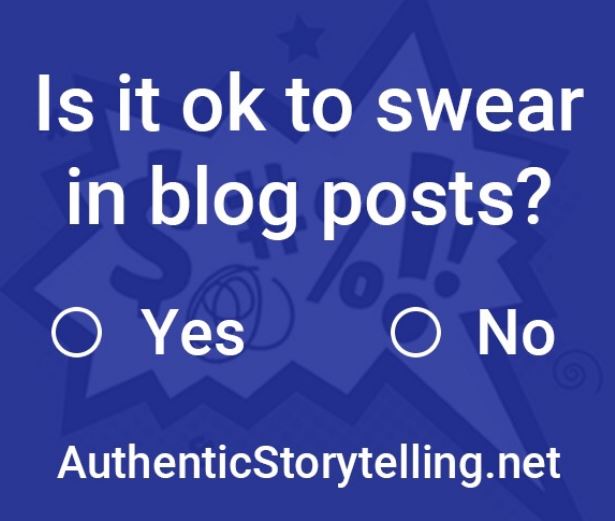Digital marketing can be done a number of different ways.
- Slow or fast
- Set or iterative
- Right or wrong to a degree (of course, there are many different right answers to digital marketing issues)
- Authentically or trickery
I’m a big fan of running digital marketing in a fast way that’s iterative and actually allows me to figure out the right way for specific audiences.
But today, let’s talk about that fine line between authentic transparency versus trickery.
What’s trickery in digital marketing anyways?
Here’s how I define trickery and digital marketing: when digital marketers implement a tactic that gets people to do things they didn’t intend to do or the tactic is misleading. Of course, digital trickery can actually work short-term, but it’s not a long-term strategy and certainly isn’t customer-focused when done intentionally.
Sometimes it’s unintentional by the marketer, and hopefully that’s the case most of the time. But when it’s done unintentionally, marketers quickly change their tactic.
I’ll give you an example of when I crossed the line myself:
I often run marketing campaigns on my blog- The Authentic Storytelling Project– and often times I use display ads for those campaigns.
One of my ads said:
Should you swear in blog posts?
Then below that were two check boxes – one for ‘yes’ and one for ‘no’.
Of course, the ad was really just a static image and when you clicked ‘yes’ or ‘no’, you ended up going to the blog post that answered that question. Really, you could click anywhere on the ad and get the same journey.
The ad performed really well and I was excited by how many people were caring about the topic. And then Google turned off the campaign because it was misleading. What they explained was that if you have check boxes in your ad, they actually need to work and can’t just be a static element on a static image.
It appeared to me that somebody had reported the ad after they clicked on it and it didn’t do what they expected it to do.
My intent certainly wasn’t to be misleading, but at least one person thought the ad was tricking them into doing something they didn’t expect to be doing.
Certainly, I worked with the designer to create the ad and then even get some advice on how to place it, and thought about the budget and more. But it didn’t cross my mind that it would be seen as trickery.
However, now I know and won’t run similar ads again. The other thing that’s important once somebody reports that they felt tricked is to promptly understand, learn, and adjust.
In fact, I wonder if when we have highly performing campaigns and are surprised by how well they perform, should we actually go back and review the customer journey to make sure our intent and message is clear and not tricky? Success can also be a sign of failure, I guess. Ultimately, prospects who were tricked into buying, likely won’t continue buying.
I don’t mean to slow down any process and the only way for digital marketing to work is through public implementation. But, consider slowing down for just a moment and thinking about whether or not the content assets about to be published actually hit the intended message.
But of course, good digital marketers get really close to the line of trickery in their ongoing journey to reach relevant audiences. When we optimize with good and customer-focused intentions, that’s okay. Just be sure that if you cross the line by accident to adjust and learn!
This is also another reason to not run digital marketing in a vacuum. Have regular meetings with stakeholders, and talk through concepts and actual steps. Share ideas and strategies to help everyone think through if strategies might work without tricking people.
I actually talked about this concept in my webinar on editorial planning. Click here to watch it.
With that, keep optimizing campaigns but stay on the side of relevance and not annoying or trickery.
Book a Free 15-Minute Content Consulting Session
Have questions about your content strategy? Schedule a free session with our Global Content Marketing Expert.
What You Can Get Advice On
- Content Strategy
- Authentic Storytelling
- Social Media Strategy
- Content Marketing Tools
- Content Team Structure








